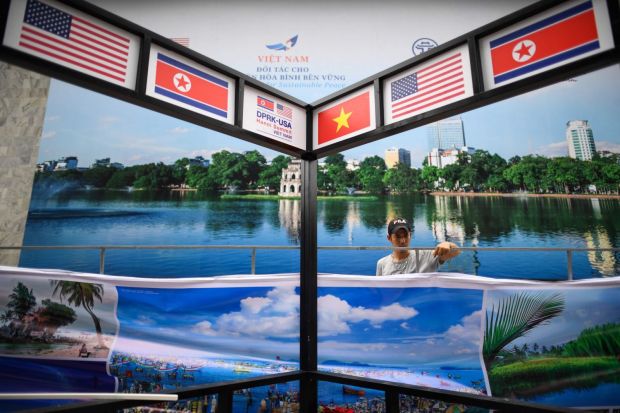Asean has gained from US Asia policy: researchers
SOUTH-EAST Asian states have gained from the Trump administration’s policy in Asia so far, said ISEAS-Yusof Ishak Institute senior fellows Malcolm Cook and Ian Storey in a March 14 edition of ISEAS Perspective, writing: “So far, Southeast Asian states have benefitted as a venue for the Trump-Kim summits, greater US security actions in the region, and from the presidential preoccupation with the economic threat from China.”
Despite the failure to reach a deal, the second Trump-Kim summit in Hanoi was a “qualified success” for Vietnam, they said: “As with Singapore, the international media exposure is likely to generate hundreds of millions of dollars in tourism and retail revenue for a relatively small outlay for security and possibly hotel accommodation for the North Korean delegation.”
Though the Trump administration remains focused on North-east Asia, South-east Asia figures prominently in the United States’ defence policy regarding China, they added.
As for economic policy, although US-China trade tensions are a negative external risk, the Trump administration’s focus on North-east Asia has benefited South-east Asia. Probes of 16 trading partners with trade surpluses to the US — including Indonesia, Malaysia, Thailand, and Vietnam — have not yet led to trade remedy actions against those four Asean countries.
Said the researchers: “The predominance of Northeast Asian issues in the Trump administration’s Asia trade policy agenda, and the difficulty of arriving at deals with China and Japan, have likely spared the Southeast Asian economies with much smaller trade surpluses with the US from retaliation. So far, the economic outcomes for Southeast Asia of the Trump administration have been better than first feared.”
However, they acknowledged that given the withdrawal of Generalized System of Preferences privileges for exports from Turkey and India on March 4, Indonesia and Thailand might face a similar fate.
Overall, the Trump administration may appear to be ignoring South-east Asia, with Trump failing to attend the Asean Summit in November 2018 and the chances of him attending the Asean-US Summit and East Asia Summit this November similarly “not good”. Nonetheless, the researchers noted that closer US engagement with Asean is a central theme of the Asia Reassurance Initiative Act 2018, which will receive funding of at least US$1.5 billion dollars a year until 2023.
The Act even “goes further than many Asean member-states may wish”, they added, noting that it covers areas such as human rights, democracy, and good governance issues in the region.
Source: https://www.businesstimes.com.sg/asean-business/asean-has-gained-from-us-asia-policy-researchers


 English
English




